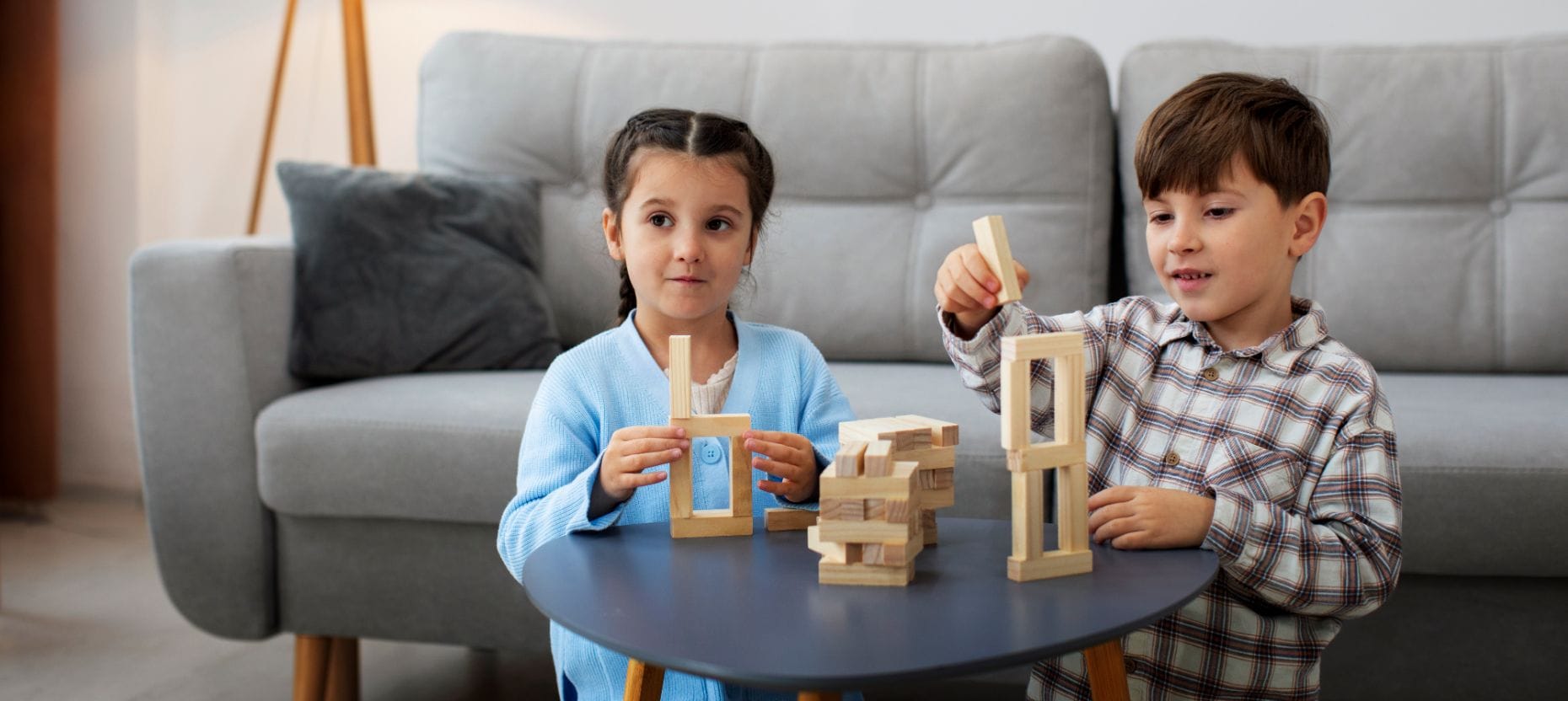Introduction
Early childhood is a critical period for brain development. During these formative years, a child’s brain is highly malleable, absorbing information like a sponge and building the foundation for future learning and growth. One of the most effective ways to foster cognitive development in young children is through play. Play is not merely a fun activity; it is a vital tool for learning, problem-solving, and creativity.
In this blog post, we will explore how play enhances cognitive development in early childhood and provide practical tips for parents and caregivers to integrate play into a child’s daily routine.
The Importance of Cognitive Development in Early Childhood
Cognitive development refers to how children think, explore, and figure things out. It encompasses skills such as memory, attention, problem-solving, and language acquisition. The early years—from birth to around age eight—are particularly crucial for cognitive growth because this is when the brain forms the neural connections that shape learning and behavior.
A child’s cognitive development impacts their ability to:
Understand and process information
Make decisions and solve problems
Develop communication and language skills
Build social and emotional awareness
The Role of Play in Cognitive Development
Play serves as a natural and enjoyable way for children to learn. It helps them explore the world, develop new skills, and practice critical thinking. Below are several ways play contributes to cognitive development:
1. Fostering Creativity and Imagination
Creative play, such as drawing, storytelling, or pretend play, stimulates a child’s imagination. These activities encourage children to think abstractly, envision scenarios, and innovate solutions to problems.
2. Enhancing Problem-Solving Skills
Games like puzzles, building blocks, or board games challenge children to think critically and strategize. These activities promote logical reasoning and the ability to plan and execute tasks.
3. Building Language and Communication Skills
Play that involves interaction with peers or adults, such as role-playing or singing songs, helps children develop vocabulary and improve their ability to express thoughts and ideas.
4. Improving Focus and Attention
Activities that require sustained effort, such as crafts or structured games, help children learn to concentrate and follow instructions—skills that are essential for academic success.
5. Promoting Social Cognition
Group play teaches children how to interact with others, share, and understand different perspectives. These social experiences contribute to empathy and emotional intelligence.
Types of Play and Their Benefits
Different types of play serve unique purposes in cognitive development. Here are a few examples:
1. Free Play
Unstructured play allows children to explore their interests and make independent decisions. Examples include playing with dolls, cars, or engaging in outdoor adventures.
2. Guided Play
In guided play, adults provide a framework while allowing children to lead. For instance, setting up a scavenger hunt or helping children build a Lego tower encourages collaboration and creativity.
3. Physical Play
Activities like running, jumping, or playing tag improve motor skills and coordination while also stimulating brain development.
4. Educational Play
Games and toys designed to teach specific skills, such as counting games, shape sorters, or memory cards, directly support learning objectives.
Practical Tips for Parents and Caregivers
Integrating play into a child’s daily routine doesn’t have to be complicated. Here are some practical tips:
Create a Play-Friendly Environment: Provide safe and engaging spaces with age-appropriate toys and materials.
Encourage a Variety of Play: Mix free play, guided play, and educational activities to support well-rounded development.
Limit Screen Time: Prioritize hands-on, interactive play over passive screen-based activities.
Join in the Fun: Engage with your child during playtime to strengthen bonds and model positive behaviors.
Observe and Adapt: Pay attention to your child’s interests and abilities, tailoring activities to their needs.
The Science Behind Play and Brain Development
Research shows that play activates multiple areas of the brain, promoting the growth of neural pathways and improving cognitive flexibility. For instance, pretend play has been linked to the development of the prefrontal cortex, which governs decision-making and self-regulation. Additionally, physical play increases blood flow to the brain, enhancing memory and attention.
Final Thoughts
Play is much more than a leisure activity; it is a cornerstone of early childhood development. By encouraging various forms of play, parents and caregivers can nurture cognitive growth and set the stage for lifelong learning. Remember, the best play experiences are those that are engaging, enjoyable, and tailored to a child’s unique interests and abilities.
Let’s embrace the power of play and unlock the limitless potential within every child. After all, the greatest lessons in life are often learned through the simplest joys of play.
Are you ready to enhance your child’s cognitive development through play? Start today by incorporating these strategies into your daily routine. Share your experiences and favorite playtime activities in the comments below. Let’s build a community where every child can thrive!
Latest Posts

How to Make Math Exciting for Early Learners (K-2)
Discover creative strategies and engaging activities...
Read more
Enhancing Early Childhood Cognitive Development Through Play
Discover how play fosters creativity, problem-solving,...
Read more
Boosting Confidence in Children: Practical Tips for Parents
Discover practical tips to help boost...
Read more
The Role of Technology in Modern Kids’ Education
Explore how technology transforms kids’ education,...
Read more
Related post
-

The Benefits of Early STEM Education for Kids
Discover the benefits of early STEM education for kids. Foster creativity, critical thinking, and future-ready skills with engaging STEM learning.
Read more -

Boosting Confidence in Children: Practical Tips for Parents
Discover practical tips to help boost your child’s confidence and self-esteem. Learn how to encourage growth, independence, and resilience in…
Read more -

Do you have the habit of counting the change delivered by the cashier at the mall or supermarket?
This can be confusing at first. But make it easy for your children by downloading our free subtraction worksheets. Concepts…
Read more









